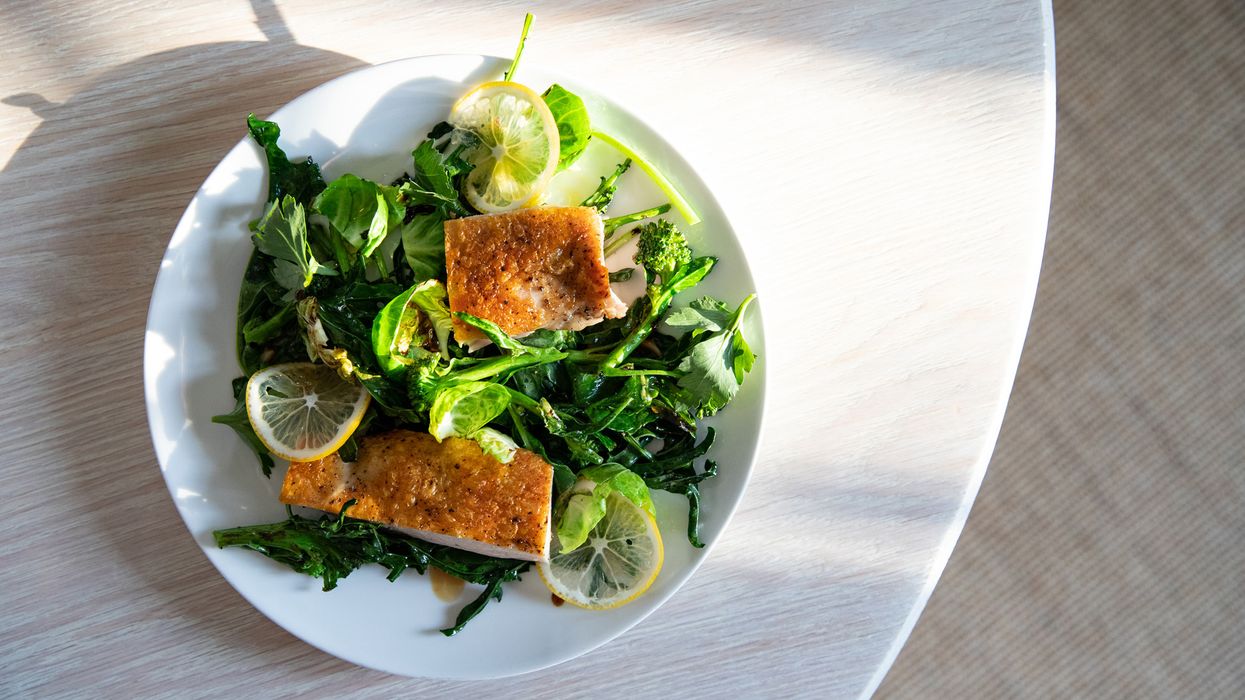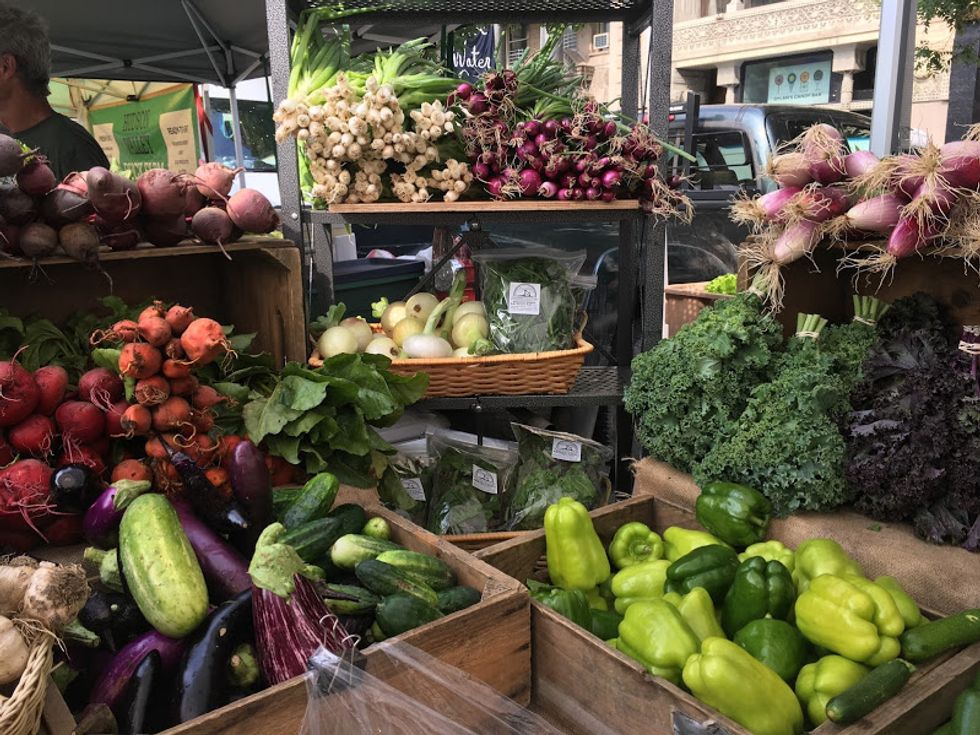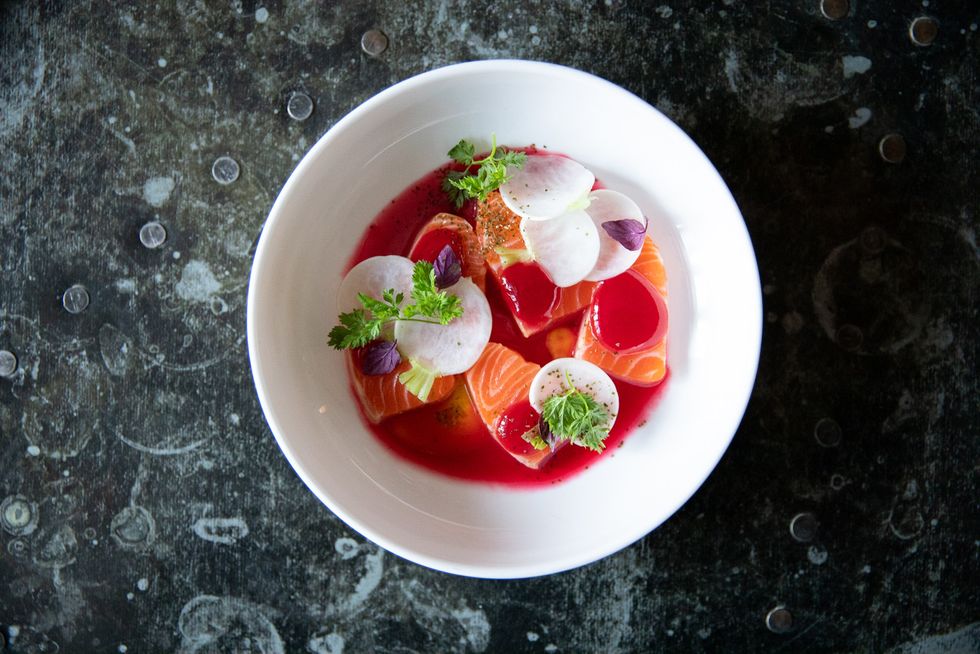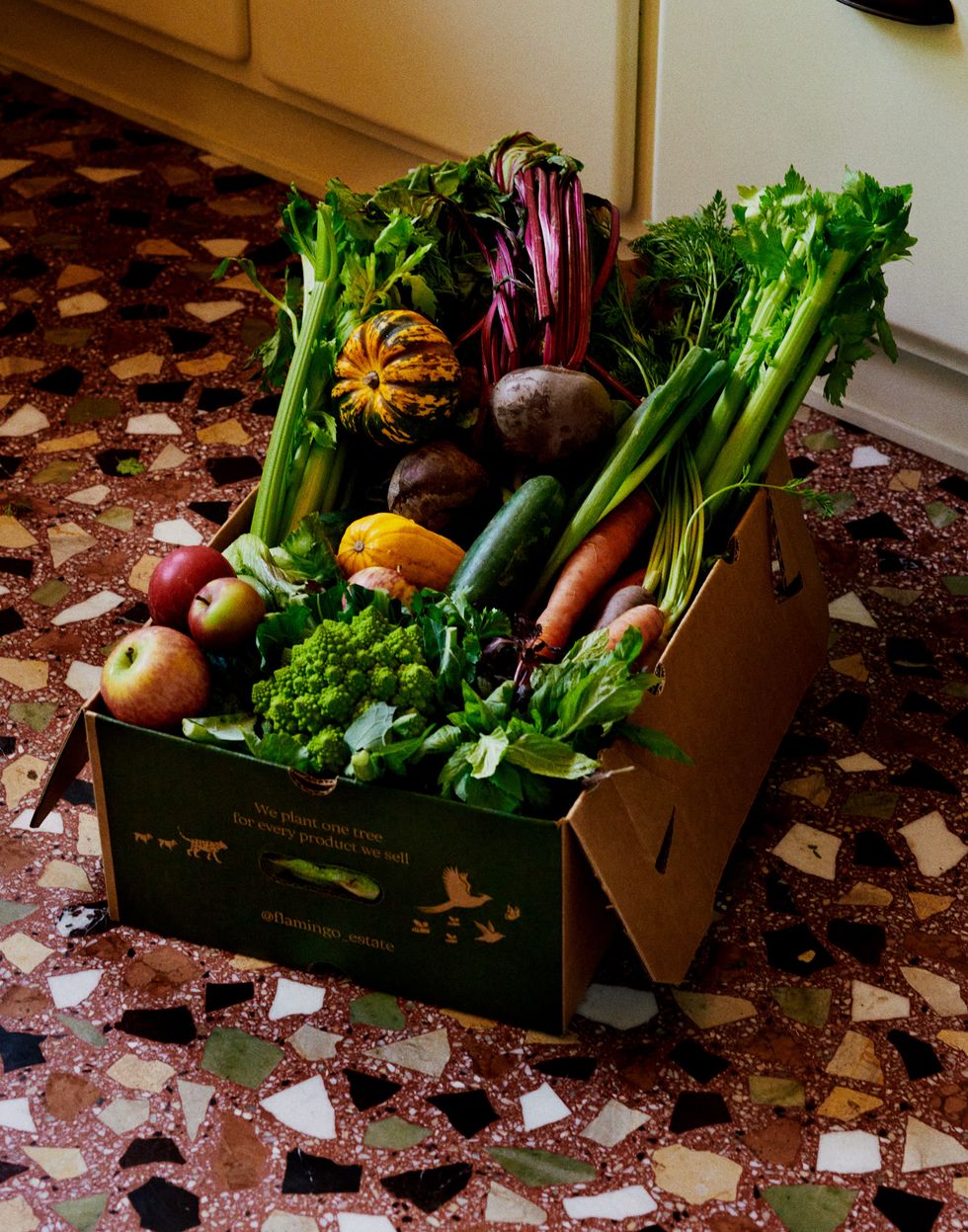
28 January, 2021
10 November, 2021
When you think about it, most everything we enjoy can be traced back to farmers. A pour of earthy Cabernet Franc, a crunchy head of lettuce, a reviving cup of single-origin coffee—some of life’s greatest simple pleasures begin in the earth and end up in our bodies. As simple as that sounds, the bureaucracy and competition of buying and selling goods often muddle that fact. As John F. Kennedy once observed, “[The farmer] is the only man in our economy who buys everything at retail, sells everything at wholesale, and pays the freight both ways.” In other words, it’s always a good time to re-examine your appreciation and support for agricultural economies, as they are our lifeline. Ahead, hear from experts on the best ways to be an advocate for farmers this year, all whilst enhancing your everyday life.
 Photo: Courtesy of GrowNYC
Photo: Courtesy of GrowNYCShop Weekly Farmers’ Markets
On the topic of supporting farmers, the first thing that probably comes to mind is the iconic farmers’ market—so let’s start there. “The benefits of buying directly from a farmer are many,” Catherine Crawford tells Coveteur. She’s the communications specialist for GrowNYC, a greenmarket program that’s been around for over 40 years and operates 50 markets throughout New York City. “Shoppers can ask the farmer all about the products offered, the growing practices they use, and even cooking tips,” Crawford says. “And everything is fresh and delicious because the produce is picked at its peak.”
The positive environmental impact (and preservation of farmland) that comes with shopping your local farmers’ market is another major benefit. “Shopping at the farmers’ market helps ensure that farms stay in business and that farmland isn’t further developed by real estate pressures,” she continues. “The food travels fewer miles, meaning a reduction in fossil fuels and retention of nutrients because produce hasn’t traveled across the country, or even the world, to get to you.”
What some may not realize is that supermarkets specialize in thick-skinned produce that Crawford explains has been bred not for flavor, but for its shipability. “This means you’ll likely find only two or three varieties of each type of produce, if you’re lucky,” she says. On the other hand, at the farmers’ market, you’ll find dozens of varieties. “By only buying foods you know, you are missing out on a world of flavor,” she says. “And by buying these lesser-known varieties, you’ll be encouraging farmers to grow them. Crop diversity is essential to agricultural health.”
Beyond all that, a weekly visit to your local greenmarket is deeply enjoyable and can feel ritualistic. Crawford notes that the smartest way to get the most out of your trip is to meal around the seasonal produce that’s offered and arrive early. “We recommend that shoppers get to the market as early as they can to ensure the best selection, as farmers often sell out of many of their products by the end of the day,” she advises. “When you get to the market, shop around. Each stand has its own varieties, growing practices, and prices. Take a lap—you’ll soon find your favorites!”
 Photo: Matthew Manuso
Photo: Matthew ManusoEat at Local Farm-to-Table Restaurants
Now more than ever is the time to track down your local farm-to-table restaurants. The food and beverage industry has taken a devastating hit due to the pandemic, and investing your dollars in eateries that, in turn, invest in farmers is a win-win. Gabe McMackin is the executive chef at Troutbeck, a historic 250-acre-estate hotel in Amenia, New York, that’s played host to names like Mark Twain and Henry David Thoreau. His approach to cuisine begins with a profound respect and appreciation for the ingredients.
“We think of food in a few basic ways: it’s fuel, it’s pleasure, it’s goal oriented, it’s a platform for a conversation with family and friends, it’s art,” McMackin says. “Underneath all of that is that you put this stuff into your body. You craft it—or someone like me crafts it—and then we consume it. The energy that food contains, the love that goes into the ingredients themselves, and the respect with which we prepare them means everything to us.”
He offers the example of a subpar vegetable. “You can buy a lousy cauliflower and boil the hell out of it, cover it in cheap butter and iodized salt, and it will probably still taste OK. But you’ll feel lousy after you eat it,” he says. “You could, instead, buy the Japanese sweet stem cauliflower that Zaid and Haifa grow at Norwich Meadows, just gently blanch it in salted water, give it a bit of great olive oil, then zest some meyer lemon, a bit of juice, and a handful of parsley and basil—and it tastes amazing!” These mindful decisions are what distinguish a farm-to-table restaurant from the rest.
“The elements, the tools we get to use, the relationships we have make us feel great about cooking that cauliflower. I feel proud to serve something my friends grew,” he says. “So each step of the way to the plate, there is pleasure in knowing and caring for that ingredient. And then when you eat it, it’s incredible. It’s the bright, fresh crunch of a vegetable just a few days from the ground, full of flavor. It gives you a different kind of power. It just does.”
 Photo: Courtesy of Flamingo Estate
Photo: Courtesy of Flamingo EstateOrder Produce Boxes from Local Farmers
Community Supported Agriculture (CSAs) is another approach to supporting local farmers while enriching your at-home cooking. If you live in an agriculture-rich area like Los Angeles, where CSAs are accessible, don’t miss out on this unique opportunity. “Our CSA program has connected and introduced local farmers to many Los Angeles residents,” Richard Christiansen tells Coveteur. He’s the man behind Flamingo Estate, a home, garden, and orchard perched atop a hill in Eagle Rock. “We partner with a number of farmers and chefs on seasonal ingredients for our CSA subscribers. Our program is very much a food community, encouraging those who care about the food we eat, how it’s cooked, and the company we enjoy it with.”
A locally sourced produce box can spark imagination in your kitchen. “Supporting local farmers provides your dishes with an extra spice,” Christiansen says. “You’ll feel nourished knowing your food is fresh, you’re supporting your local economy, and you’re reducing the carbon footprint of produce transportation, which reduces food waste.”
Buy Meat in Bulk
Sure, shopping the farmers’ market and dining at farm-to-table restaurants may have already been on your radar—but did you know that you should be buying your meat in bulk? “There are some butchers that do a tremendous job in how they source animals and how they care for them,” McMackin says. “But some butcher shops are buying commodity meat, just the same as big grocery store chains. So while local is always great, you also have to look at the product itself.” McMackin explains that even bigger grocery stores can have a local pork program and that you can find incredible meat at your farmers’ market, too. “Stocking up if you really love something can be expensive, but it’s really worth it,” he adds.
If you’re really digging this approach, McMackin has another idea. “If you have the freezer space or friends to split it with, you can often buy whole animal from farmers, who can have an animal cut and packaged for you the way you want it,” he explains. “It’s great to have an opportunity to explore cuts and dishes you’ve never done before, it’s often significantly cheaper (by the pound) to buy whole, and supports your farmers in the most direct way possible.”
 Photo: Matthew Manuso
Photo: Matthew ManusoEat Food That’s In Season
Simply put, if you’re eating produce that would normally be consumed six months from now, it’s time to re-evaluate. For starters, the fuel emissions involved in transporting fruits and veggies across the world is detrimental to the environment in the long run. But beyond that, eating local and in season fuels the farmer’s business. “When we buy from our community, we create a dialogue with our suppliers. ‘Hey, do you have any more of those fantastic carrots?’ ‘Yes! I’m so glad you liked them, I’ll have them for another two weeks.’ That’s a conversation much deeper than putting an order in to a big supplier or walking the aisles of the supermarket,” McMackin explains.
“And the deeper we get, the more collaborative we become. We know more about that person, their farm, and when one of us thrives, we all thrive,” he adds. “Those carrots that I love could become a huge seller for that farmer. My saying how much I loved them, buying all those carrots up might make the person next to me at the market a little grumpy, but it also might make that person get excited to come back and try those carrots next time they’re at market.”
Top photo: Matthew Manuso
Want more stories like this?
Designer Alison Chemla on the Art of Challah Making
Brain Fog? These Foods Will Help Declutter Your Mind
7 Experts Share Their Secrets to the Perfect Wine and Cheese Board




